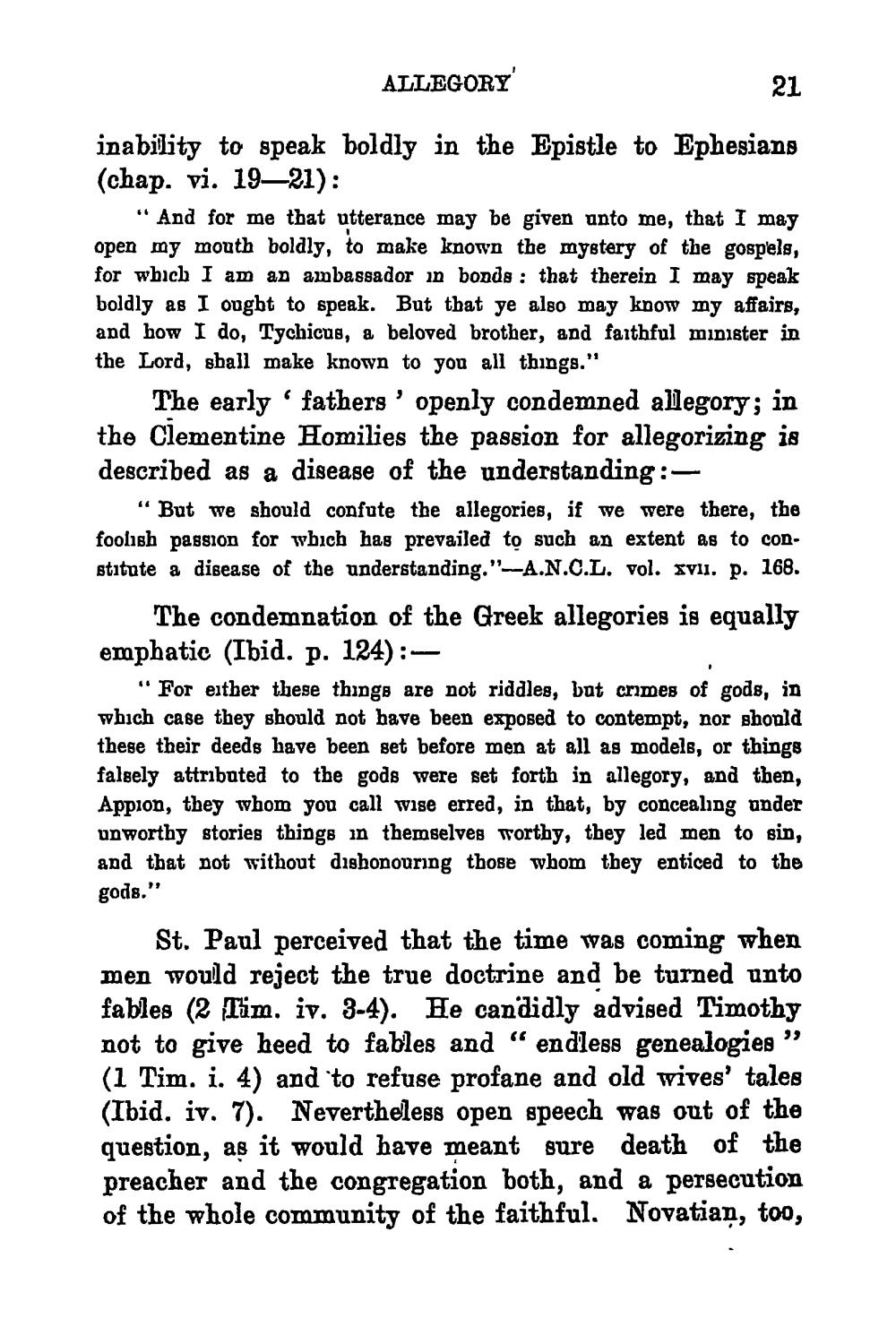________________
ALLEGORY
inability to speak boldly in the Epistle to Ephesians (chap. vi. 19—21):
“ And for me that utterance may be given unto me, that I may open my mouth boldly, to make known the mystery of the gospels, for wbich I am an ambassador in bonds: that therein I may speak boldly as I ought to speak. But that ye also may know my affairs, and how I do, Tychicus, a beloved brother, and faithful minister in the Lord, shall make known to you all things."
The early 'fathers' openly condemned allegory; in the Clementine Homilies the passion for allegorizing is described as a disease of the understanding: -
“ But we should confute the allegories, if we were there, the foolish passion for wbich has prevailed to such an extent as to constitute a disease of the understanding."-A.N.C.L. vol. svii. p. 168.
The condemnation of the Greek allegories is equally emphatic (Ibid. p. 124):
" For either these things are not riddles, but crimes of gods, in which case they should not have been exposed to contempt, nor should these their deeds have been set before men at all as models, or things falsely attributed to the gods were set forth in allegory, and then, Appion, they whom you call wise erred, in that, by concealing under unworthy stories things in themselves Torthy, they led men to sin, and that not without dishonouring those whom they enticed to the
gods."
St. Paul perceived that the time was coming when men would reject the true doctrine and be turned unto fables (2 Tim. iv. 3-4). He candidly advised Timothy not to give heed to fables and “ endless genealogies" (1 Tim. i. 4) and to refuse profane and old wives' tales (Ibid. iv. 7). Nevertheless open speech was out of the question, as it would have meant sure death of the preacher and the congregation both, and a persecution of the whole community of the faithful, Novatian, too,




